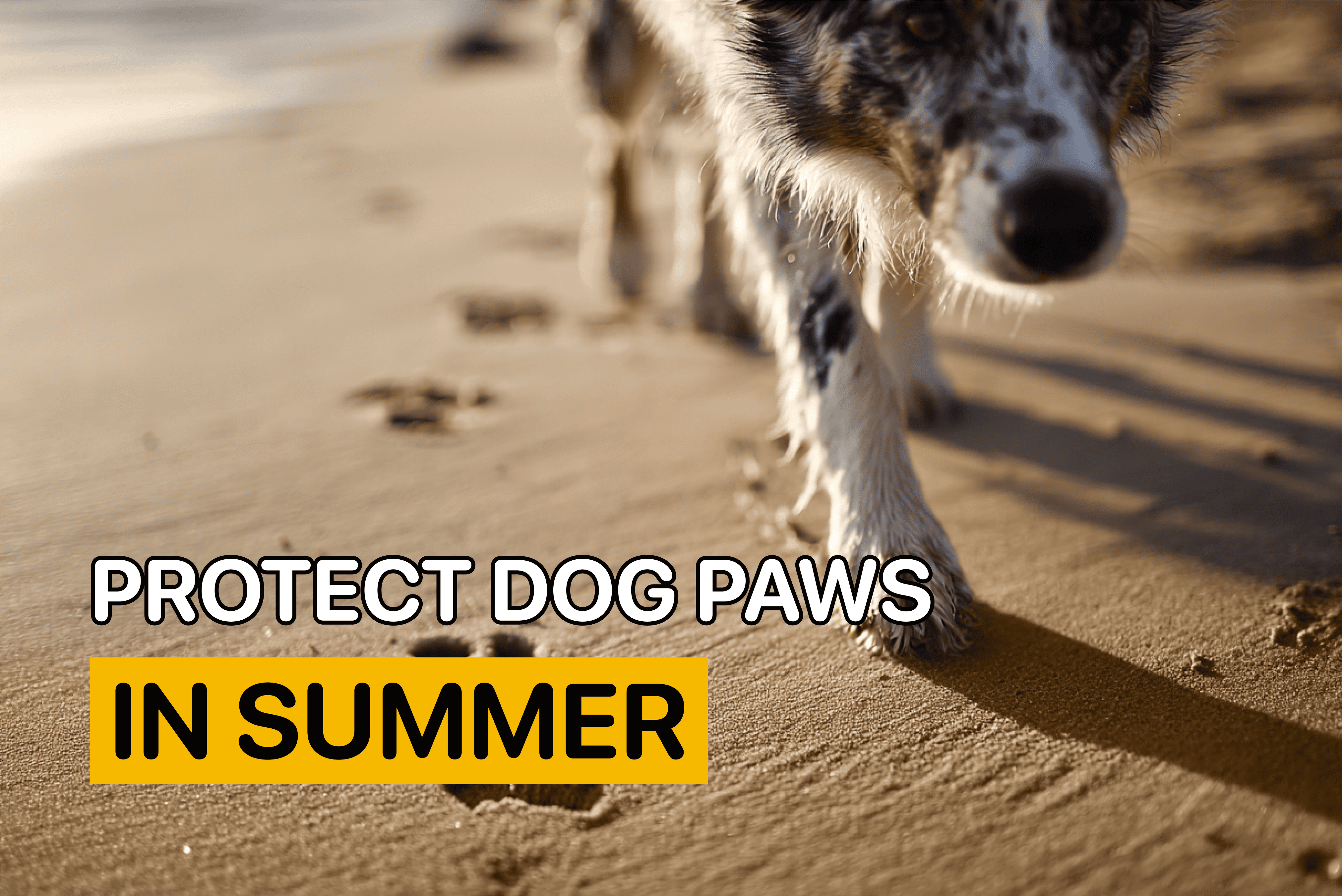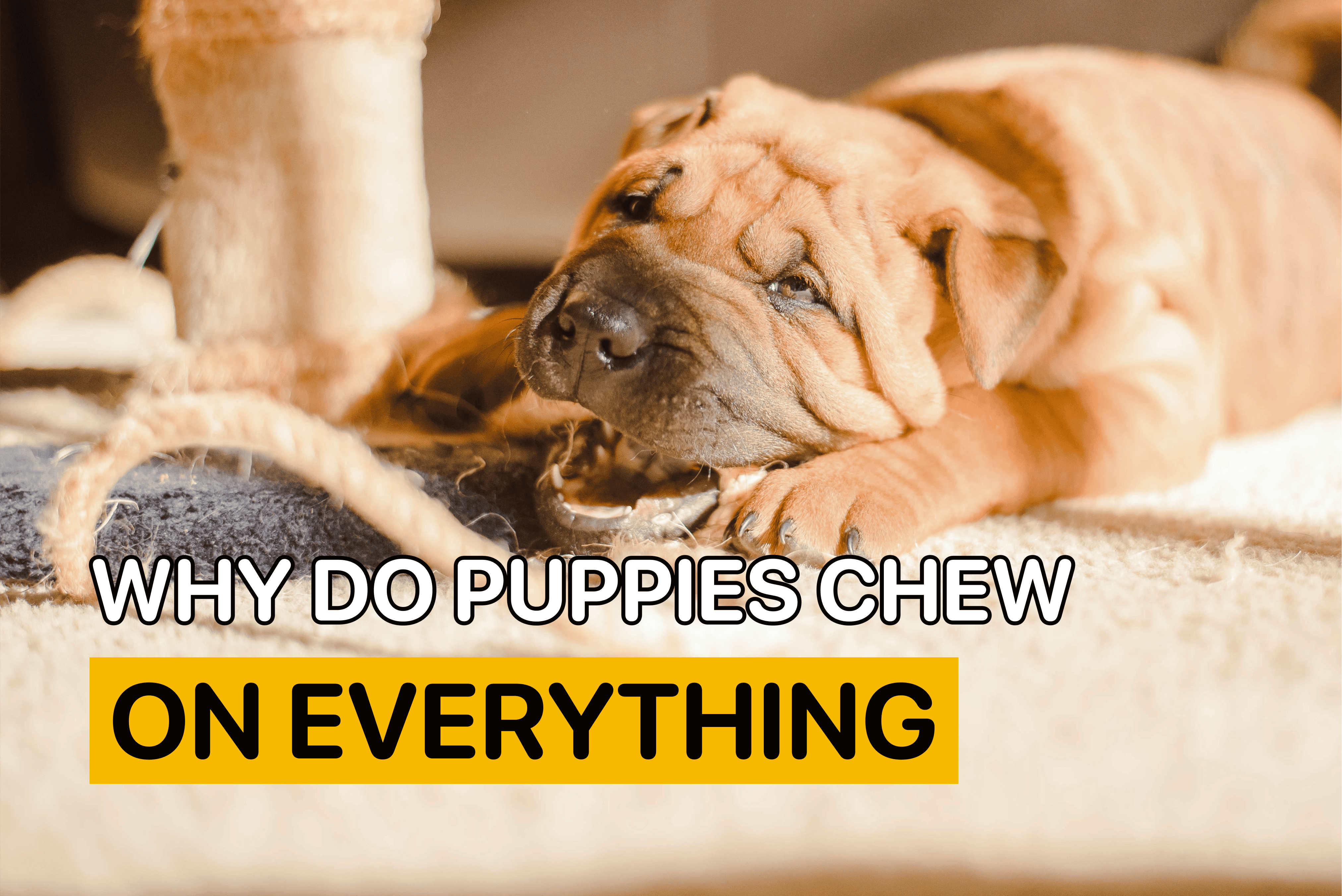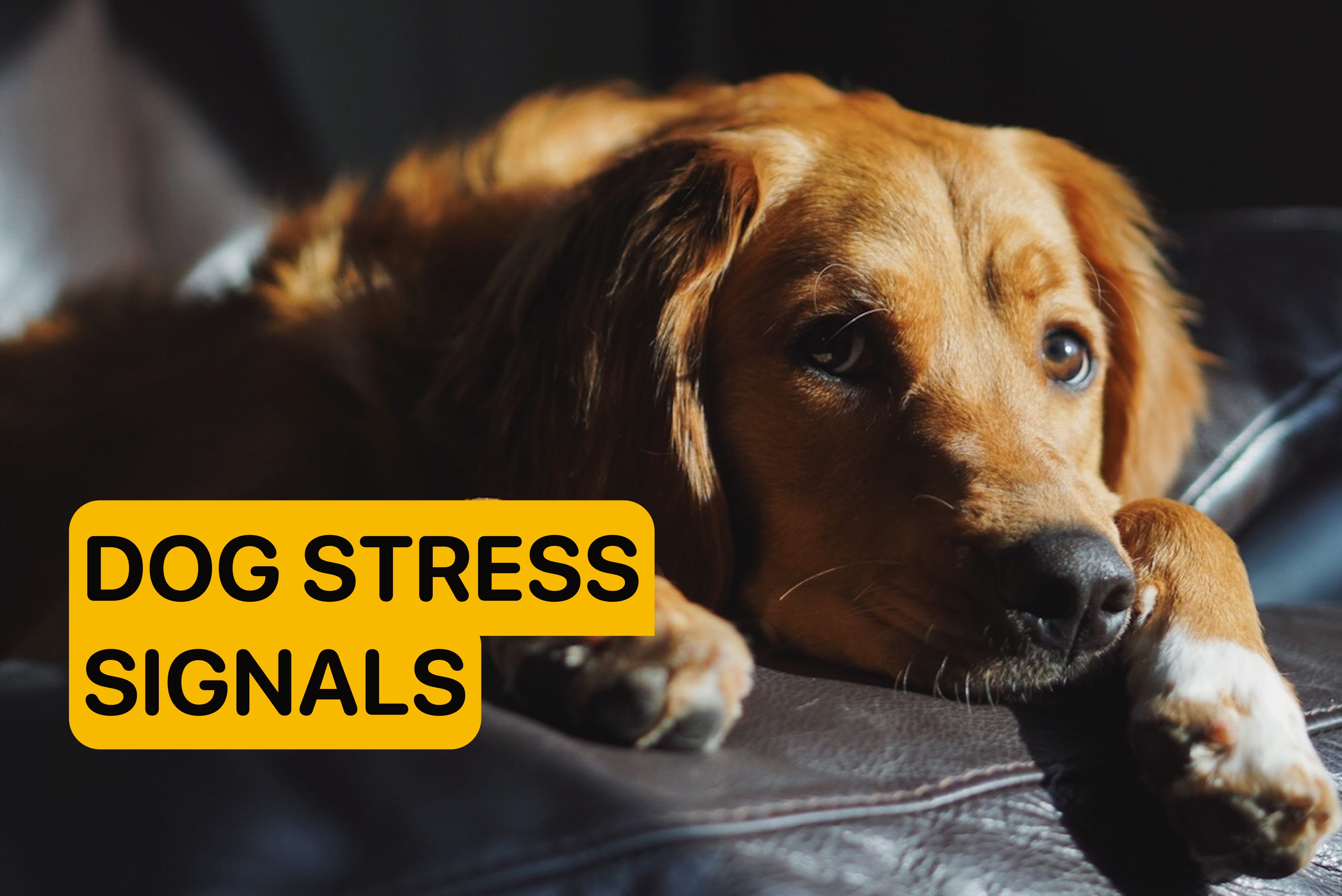Why Is My Dog Chewing His Paws?

By
Woofz Team Updated on |Reviewed by Frederica Caneiro
Licking, biting, or chewing on their paws is common for many dogs. Some owners, however, may notice compulsive traits in this habit. If your furry companion returns to chewing their feet despite your efforts to distract them, it may be a sign of a more serious health condition.
This blog post will explore common reasons for the dog's paw chewing behavior and how to stop a dog from chewing paws in an effective and stress-free way.
Dog is Chewing Paws: 6 Common Reasons
Occasional paw licking and paw chewing are perfectly normal for all canines. It's part of your pet's self-soothing or cleaning routine. If you can distract your furry companion from the behavior by offering a treat or a toy, there’s nothing to worry about.
Below, we will discuss common causes for why your dog is chewing on paws and shows excessive licking and biting on paws. It can take extreme forms, such as a dog biting paws to the point of harming themselves. Such cases require immediate intervention.
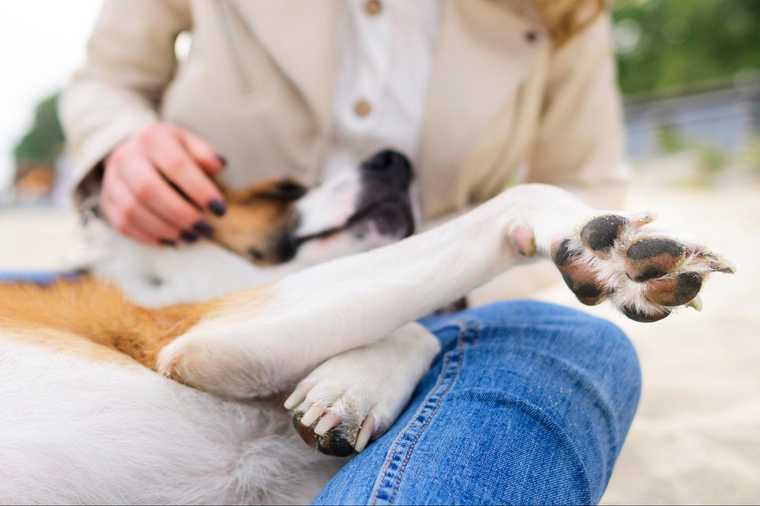
1. Pain due to injuries
Aggressive chewing on feet is often indicative of pain caused by injuries. Such behavior usually goes hand in hand with other signs of pain and discomfort, such as limping, decreased energy levels or even visible wounds.
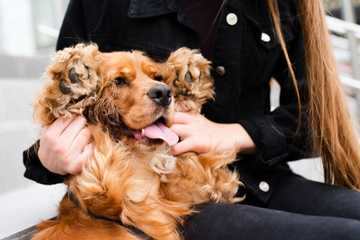
Common conditions causing pain in limbs are:
- Cut or cracked paw pads
- Paw pad burns
- Fractures
- Stings
- Ingrown nails
- Arthritis
If you suspect that your pooch licks his feet excessively due to pain, visit a vet to develop an appropriate treatment plan.
2. Allergic reactions
Allergies can cause a wide range of discomfort. Itchy paws, dog's skin irritation and redness can appear anywhere on the body, including paws. If your dog is chewing paws a lot and you suspect that their itchy skin has an allergy, consult a vet to determine the exact trigger of the reaction and prescribe allergy medications.
Certain foods, household products, pollen, or even fleas can be allergens that lead to flare-ups. In addition, these are often accompanied by secondary infections due to a weakened immune system. To treat the condition effectively, many dogs will require topical and systemic medication.
3. Poor grooming
Improper grooming can lead to various issues, such as ingrown nails or matted fur stuck between the toes. In some cases, cutting the fur on the paws too short can expose the dog to external factors that cause allergies, wounds or other injuries. It may result in your dog licking and chewing their toes.
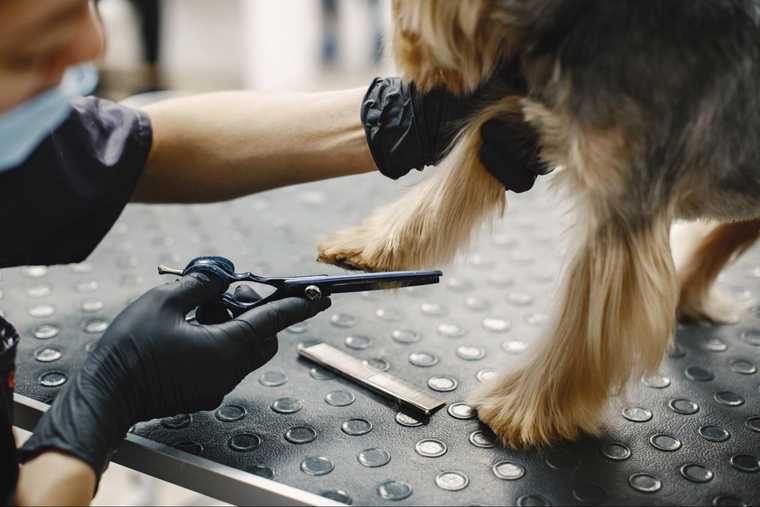
However, to treat the issue effectively, you should consult an experienced groomer who can trim the nails properly and remove fur tangles to relieve discomfort. In some cases, normal grooming won’t work.
4. Canine pododermatitis
A dog suffering from pododermatitis can display such common symptoms as redness and swelling of the nail beds, dog's pads, or even the spaces between his toes. The discomfort caused by inflammation makes dogs chew and bite their feet more than usual. The condition requires vet attention to determine the type of infection and prescribe proper medical treatment.
5. Arthritis
Another medical condition for a dog that keeps biting their foot is arthritis. Typically found in older pets, it can affect the toes and lead to pain and inflammation in the joints. Fortunately, the symptoms can become less prominent with lifestyle modifications and proper medical support.
Note: If your dog is over 8 years old and suddenly starts licking or chewing its paws without any changes in its routine or other stress factors that may be the reason for this sudden change in behavior, make sure you get it checked out by the vet.
6. Mental health issues (anxiety/stress)
If you can’t identify any underlying medical condition why your dog is chewing their paws, you may look into the behavioral and psychological side of the habit. Canines are not immune to mental health struggles, including anxiety, obsessive-compulsive disorder, stress or other behavioral problems. Such cases require behavioral therapist intervention, physical and mental stimulation or even medical assistance.
This is a widespread problem with dogs living in a hypostimulant environment, such as kennels, or with a routine that doesn't meet their needs. If a sudden chane happened in the dog's life (death of someone in the family, moving to another house/city, change in owner's routine), the behavior of licking/chewing on their paws, indicates the dogs is in a high stress emotional state and you should seek help as soon as possible to avoid the development of other symptoms. Dogs with separation anxiety also tend to exhibit this kind of behavior when the owner is absent.
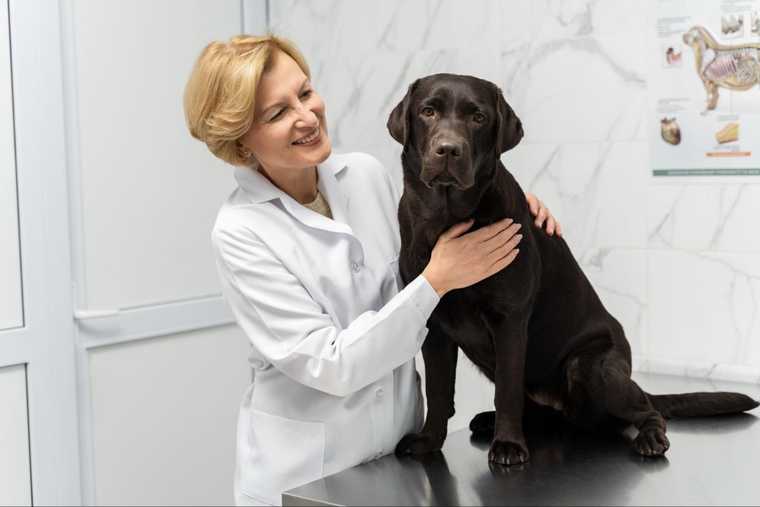
How to Relieve a Dog's Biting Paws
Since chewing is often excessive, it can cause further irritation of already damaged and dry skin and bring tons of discomfort for your pooch. Consulting a vet is essential, but there are also some in-home solutions to ease the pain and help your dog heal more effectively.
-
Treat inflammation: Start with managing the cause of discomfort. If it’s inflammation due to infection, ask a vet for an antibiotic prescription to fight it off. Remove the allergen if you suspect an allergic reaction, or use itch relief medication for the wound.
-
Keep the feet dry: Distract your pet from paw licking when possible by offering them a toy, a treat, or another activity. In extreme cases, using a collar can be necessary.
-
Alleviate pain: Use pain medication, anti-inflammatory drugs or joint supplements. These supplements can be particularly effective for dogs with arthritis.
-
Ensure proper nail care: Paw hygiene is vital for all dogs. However, those suffering from frequent ingrown nails require an even more diligent approach. Consult a grooming specialist to trim your pet’s nails properly.
-
Work on behavioral issues: If dogs develop excessive paw licking that is psychological, you can help your dog overcome it by working with behavioral experts, who will develop an individual program for your pooch.
How to Stop a Dog from Chewing Paws
Stopping paw-chewing behavior requires a personalized approach. Depending on the cause of the issue, the treatment may vary from prescription medication to environmental changes and behavioral therapy.
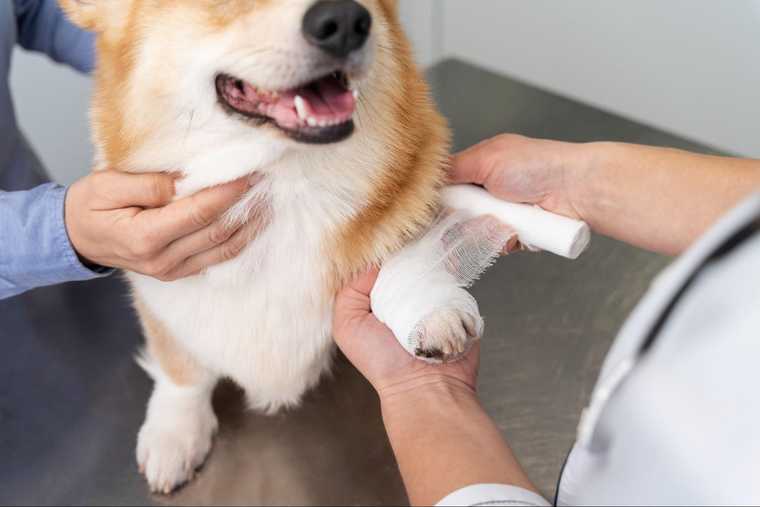
Here is the common plan for dthe treatment of dog chewing paws:
- Find the cause of the condition.
- Consult a vet about medical treatment.
- Distract and redirect the behavior.
- Provide daily mental and physical stimulation.
- Try to reduce anxiety.
- Use regular anti-parasite treatment.
- Trim the nails regularly.
Though a dog biting paws is not a medical emergency, we recommend addressing the issue as soon as possible. Signs such as bleeding, discharge, swelling in the paws, or limping should be checked by a professional. If the case is not severe, you should still seek professional help, as the issue can impact your dog’s life negatively and cause a lot of discomfort.
Wrap Up
Chewing paws is typical behavior for most dogs. However, it can become excessive due to pain, inflammation or other health-related conditions. Such cases require veterinary attention, behavioral therapy and lifestyle modification. These steps on how to relieve dog biting paws provided in this guide can help reduce the pain dogs experience and make them enjoy their lives to the fullest.
